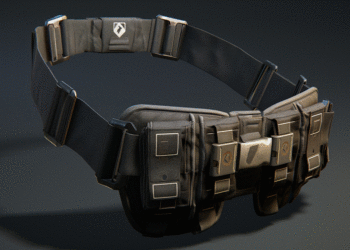Introduction
Starting a skip hire for the first time can seem like a complex process with many details that often aren’t immediately clear. Questions such as what size of skip is needed, whether a permit is necessary for placing it on a public road, and what items are not allowed in the skip are common.
This guide is designed to simplify the process for those new to skip hire, providing expert insights into our users’ most common questions and concerns. From selecting the right skip size to understanding permits and safety regulations, we aim to offer a comprehensive overview to make your skip hire experience in Epsom as straightforward as possible.
1. What can’t I put in a skip?
Certain materials should not be disposed of in a skip due to environmental and safety regulations. These include:
- Asbestos
- Batteries
- Medical waste, such as syringes and bio-hazardous items
- Electronic devices and appliances
- Paint containers
- Refrigeration units like fridges and freezers
- Gas cylinders and bottles
- Televisions
- Tyres
- Oils, including petrol and diesel
- Plasterboard
- Any liquids
- Hazardous or toxic substances
- Fluorescent light tubes
Placing these prohibited items in your skip can result in additional charges and the return of these items to you.
To prevent unauthorised waste disposal in your skip, especially when placed in easily accessible or public areas, it’s recommended to monitor your skip. This vigilance helps avoid being held accountable for unsuitable content.
For added security and to ensure compliance with regulations, consider renting a skip that can be locked. This measure assures that the skip’s contents remain within guidelines and prevents unwanted additions.
2. Determining the Right Skip Size for Your Needs
Understanding the appropriate skip size for your project might not be straightforward, especially for those hiring one for the first time. The size you need varies based on the volume of waste you anticipate and the available space on your premises. Opting for a skip that’s too small could necessitate additional hires or incur extra costs, while a larger skip might mean paying for space you don’t use.
We offer a comprehensive guide detailing the dimensions and appropriate uses of our various skip sizes to assist in making an informed decision. Our goal is to help you find a solution that’s both cost-effective and suitable for your specific requirements.
For personalised advice, contacting our expert team is the best course of action. They’re equipped to guide you through selection, ensuring you get the most suitable skip size for your project.
3. How much is it to hire a skip?
The cost of renting a skip isn’t fixed. It varies significantly based on several factors, including the skip size and your location. Generally, skip hire is more affordable in the North of the UK, attributed to lower operational and disposal expenses. In contrast, the South may present higher fees. The necessity of a skip permit and the rental duration also influence the overall price.
We can quickly estimate the specific skip you require and the applicable costs in your area. For a prompt and complimentary quote, please feel free to contact us.
4. What is a skip permit, and do I need one?
Placing a skip on a public roadway often necessitates a skip permit due to the lack of private land or driveway space. Known as an ‘on-road skip’, arranging this permit in advance is essential to avoid delays and additional costs.
Our service includes handling the permit acquisition process on your behalf and simplifying the procedure. A parking suspension will be required if your skip location falls within a controlled parking zone, such as near single yellow lines or pay-and-display bays.
We’re here to assist with all aspects of skip permit arrangement, ensuring a hassle-free experience.
5. Do skip companies help load the skip?
When you hire a skip, the service typically encompasses only the delivery and collection of the container. Labour for loading the waste is not included in the standard service. If you require assistance loading your waste into the skip, exploring the possibility of a man and van service might be beneficial. It means you are responsible for filling the skip with waste or skip bags unless you opt for a different service arrangement.
Read Also: Which is Better? Skip Hire or Rubbish Removal
6. What is a wait and load service?
A wait-and-load service can be an efficient solution for situations with minimal waste or limited space for skip placement. This service involves having your waste prepared and ready in skip bags. Upon the arrival of the skip lorry, it will remain on-site while you load your waste into the vehicle. Should you need assistance with loading, a man and van service can be arranged to help, offering a more hands-on approach to managing your waste.
7. What safety rules must you follow
When arranging skip hire, it’s imperative to observe certain safety protocols to ensure the public’s and the environment’s safety. These rules can vary depending on your geographical location and the specific requirements set forth by your local council. Commonly, there is a mandate to cover your skip and enhance its visibility using lights or reflective cones. This is particularly crucial if the skip is placed in a location accessible to the public or on a public highway.
The objective is to prevent any accidents or obstructions to pedestrians and vehicles. Typically, your skip hire provider should guide you on the necessary safety measures, including the appropriate use of covers and safety lighting. These items are readily available for purchase online, ensuring you can easily comply with safety requirements.
Be wary of skip hire services that fail to inform you about these essential safety precautions, especially when the skip is intended for placement on a public road. Non-compliance with local council regulations can result in substantial fines. However, if your skip is located within the confines of private property, these public safety rules may not be applicable.
8. How much can you put in your skip?
When renting a skip, it’s important to be aware of the weight restrictions that apply. While this is rarely a concern for domestic skip hires, it becomes more relevant for construction or commercial waste disposal. Disposing of heavy materials such as soil, bricks, and rubble requires adherence to specific weight limits based on the selected skip size.
To avoid any complications, discussing the weight limitations with Skip Hire Epsom is advisable. It ensures you comply with the regulations and avoids potential issues with overloading the skip.
9. Securing Your Driveway When Using a Skip
A skip’s considerable weight, especially when filled, risks damaging driveways made from materials like soft tarmac, block paving, or resin. To mitigate this risk, a preventive strategy involves laying down robust planks of wood or scaffolding boards at the designated drop-off location. These boards distribute the skip’s weight more evenly, reducing the likelihood of damage to the underlying surface.
It’s important to note that the risk of damage isn’t confined to the initial placement of the skip. When a lorry returns to collect the filled skip, the combined weight of the vehicle and the skip’s contents can exert significant pressure on your driveway, potentially causing harm. If concerns about potential damage exist, engaging in a conversation with us is advisable. They can offer tailored advice and solutions to ensure your driveway remains protected throughout the skip’s placement and removal process.
Conclusion
To sum up, skip hire in Epsom can be easily approached when equipped with the necessary information and support from professionals. Knowing the basics of skip hire is essential when dealing with household cleanouts, garden waste, or construction debris. We are here to support your project with effective solutions and knowledgeable advice, ensuring a hassle-free skip hire process that meets your specific requirements.
Have you read: Skip Size Guide for Effective Waste Management
David Prior
David Prior is the editor of Today News, responsible for the overall editorial strategy. He is an NCTJ-qualified journalist with over 20 years’ experience, and is also editor of the award-winning hyperlocal news title Altrincham Today. His LinkedIn profile is here.


![7 Best POS Software in the UK [2026 Edition]](https://todaynews.co.uk/wp-content/uploads/2026/02/7-Best-POS-Software-in-the-UK-2026-Edition-360x180.png)










































































